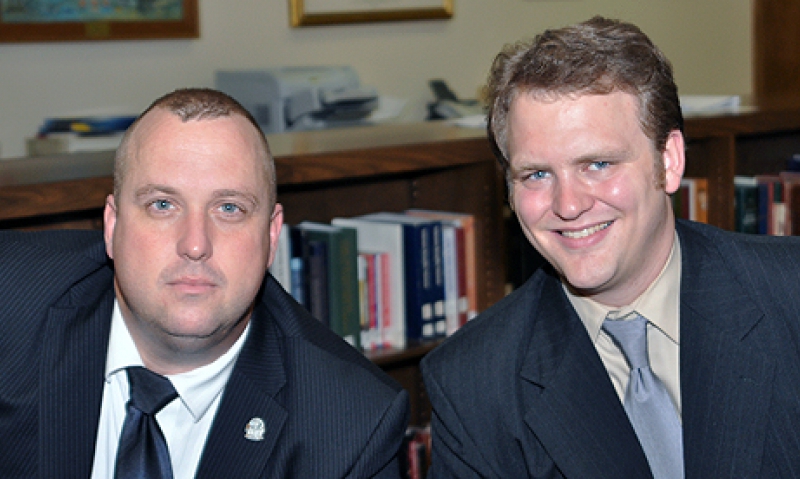
On-base offices give Legion staff opportunity to help troops through the medical discharge and disability evaluation process or ‘whatever a servicemember needs.'
The American Legion expands its outreach to military personnel in transition this month by opening new offices for Madigan Army Medical Center near Tacoma, Wash., and Brooke Army Medical Center in San Antonio, Texas.
Army retiree and recently discharged combat medic Jon Dickson will lead the Brooke initiative, providing services for active-duty personnel at Fort Sam Houston and Randolph Air Force Base, while Navy veteran Brian Buckler will work out of Madigan, serving Fort Lewis and McChord Air Force Base. Both offices will be in Soldier and Family Assistance Centers.
Dickson and Buckler join American Legion representative Jerry Johnson, who has been working on post at Walter Reed Army Medical Center in Washington, D.C., for the past three years, in the effort to ease the transition process for troops awaiting medical discharge. The staff position is called "physical and medical examination board representative," or PEB rep, but Buckler and Dickson realize their work can include handling just about any problem or concern an active-duty troop might have during the process.
Buckler says they are prepared to assist with GI Bill benefits, financial issues and employment pursuit, and offer referrals for military families when needed. "When I was in the Navy and started looking into using the GI Bill, I became very familiar with it," says Buckler, who used his military education benefits to earn a telecommunications degree from Indiana University. "I started talking to other people on the ship, and then I started helping them with it. It became sort of an unofficial position for me."
Both representatives are well-versed in effective programs, such as The American Legion's Heroes to Hometowns, that help troops as they make the transition back to civilian life. "We basically are a one-stop," Dickson says. "Whatever a servicemember needs in the transition to become a veteran."
Dickson, who was injured in Iraq while deployed with the Army's 1st Cavalry Division and medically retired in June, has firsthand experience with the process and with the San Antonio military community alike. "I was one of these soldiers, myself," he said. "The process can be very confusing." Both are cleared to make rounds in the hospitals and communicate with recovering troops to learn about their needs and concerns.
Dickson participated in a pilot program by DoD and VA to maintain just one medical file from date of enlistment through a veteran's life in order to streamline and speed up the transition process. Traditionally, conflicts can arise between DoD and VA disability ratings at the point of discharge. Some health conditions not even recorded by DoD when it determines fitness for duty are compensable disabilities under VA definitions. One of the primary jobs of a PEB rep is to make sure a troop's medical record is complete, and all conditions are accurately documented and transferred from active-duty to veteran status. "When the servicemember becomes a veteran, we don't want him or her to have to fight for over medical records to get VA benefits," Dickson says.
Because their work involves personal medical information, strict confidentiality and patient-privacy guidelines are followed.
- Troops

